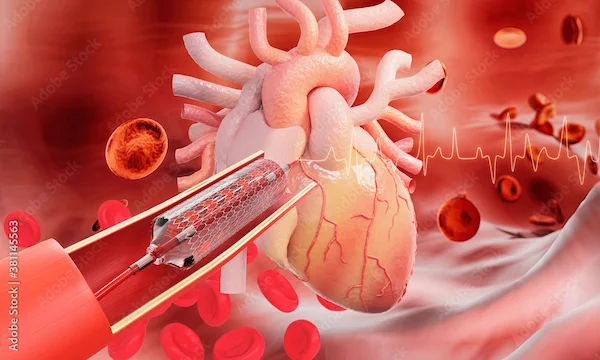- Male
- 25 Years
- 20/02/2025
I've been having chest pain on my left side and pain in my left hand for about 5 months now. On top of that, I've been dealing with a headache for the past 10 days, and sometimes I feel dizzy. The doctor had me do a TMT, ECHO, and ECG, but all those tests came out normal. I'm feeling pretty confused because my blood pressure often stays high, roughly around 120-130 over 75-85. I'm really not sure what's going on or what to do next. Any ideas on what could be causing these issues?
Answered by 1 Apollo Doctors
From the symptoms you have described, along with your normal TMT, ECHO, and ECG results, it is important to consider other possible causes for your chest pain, left hand pain, headache, and dizziness. Given your elevated blood pressure readings, it is possible that your symptoms could be related to hypertension. I recommend starting with lifestyle modifications such as reducing salt intake, maintaining a healthy weight, regular exercise, and stress management. In addition, you may benefit from medication to help control your blood pressure. I suggest starting with an antihypertensive medication like Losartan 50mg once daily to help lower your blood pressure and potentially alleviate your symptoms. It is important to monitor your blood pressure regularly and follow up with your doctor for further evaluation and management. Remember to also follow a healthy diet, avoid smoking and excessive alcohol consumption, and prioritize regular physical activity to improve your overall cardiovascular health.
Dr. Chandra Suggests...
Consult a Cardiologist
Answered 04/07/2025
0
0

More Cardiology Health Queries
View allI've been on high blood pressure medication for the past year, taking Telma 20, and I added Prazopress XL 5 about two months ago. My blood pressure is finally under control now, so I'm wondering, is it possible for me to stop taking Prazopress? Or should I definitely talk to a doctor about this change?
no u have to continue with the medications for BP.. If u have any side-effects like bradycardia ,blurred vision , palpitations u can stop the medication.. U can take tab telma h (20+12.5) mg orally once daily in the morning..
Answered by 1 Apollo Doctors
I'm a bit confused and worried about my latest ECG results. It showed a borderline and incomplete right bundle branch block. This wasn't even brought up when I went to the ER; I only noticed it when I looked at my test results later. Should I be concerned about it? What does it really mean for my health?
yes it is a concern immediate cardiologist opinion is required.
Answered by 1 Apollo Doctors
I experienced a sudden jerk in the left side of my chest while I was sleeping at night. My ECG came back normal. What should I do next?
It is possible that the sudden jerk in your left side chest could be due to muscle spasm or a benign condition. However, if you continue to experience this sensation or if it is associated with other symptoms such as chest pain, shortness of breath, or dizziness, it is important to follow up with your healthcare provider for a thorough evaluation. In the meantime, you can consider taking a muscle relaxant like Flexeril (cyclobenzaprine) 5-10mg as needed for muscle spasm.
Answered by 1 Apollo Doctors
Disclaimer: Answers on Apollo 247 are not intended to replace your doctor advice. Always seek help of a professional doctor in case of an medical emergency or ailment.


